Is Traveling to Africa Safe? Here’s What You Need to Know
FAQs About Travelling in Africa During COVID-19
If you’re considering a safari for 2022 and beyond, we want to provide you with the best information on how you can book that trip. With health and safety on the top of everyone’s mind, travellers are looking for new and safer ways to see the world.
Although there’s nothing new about an African safari, it has always been one of the safest ways to travel. But will it be safe to travel to Africa in 2022? And can you travel if you are not vaccinated? We answer these questions and more, so you can make a safe and informed decision about travelling in Africa during COVID-19…
Is it safe to Travel to Africa in 2022?
Africa remains a safe holiday destination, especially for safari. Unlike train travel, a resort or cruise vacation, you will not come into close contact with large numbers of travellers – social distancing is inherent in the African bush. Not only does safari travel keep you away from crowded places, but it also provides you with the healthiest natural air to breathe, far from big cities and pollution.
Despite the initial dire predictions, Africa has managed the COVID-19 pandemic very well. The number of daily new COVID-19 cases in Africa has remained significantly lower than most other countries in the world. This chart from Our World in Data shows the seven-day rolling average of new confirmed COVID-19 cases per million people:
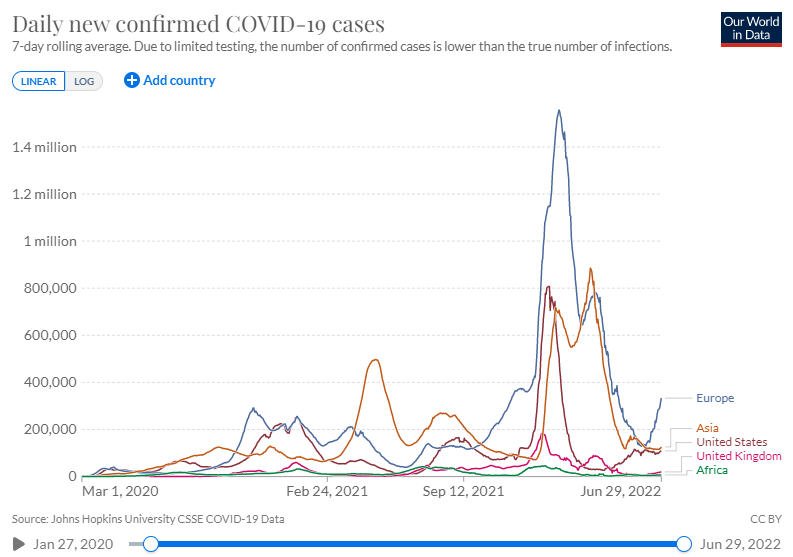
Do I need to be vaccinated to travel to Africa?
Although most African countries are starting to require COVID-19 vaccination certificates, visitors who are fully vaccinated are no longer required to undergo PCR testing prior to departure or on arrival. Visitors who are not vaccinated, however, are required to undergo the necessary PCR testing prior to departure.
See our handy resources to stay up to date with COVID-19 travel requirements:

Do I need special COVID-19 travel insurance?
Comprehensive travel insurance cover is essential during any vacation in Africa. Your travel insurance should protect you against cancellation and curtailment costs if you cannot travel, or must cut your vacation short because of an unexpected event like:
- Illness, injury or death, or a vehicle accident on your way to the airport.
- Being called to jury duty, quarantined or home damage before you depart.
- Losing your job or experiencing a terrorist attack.
Travel insurance also gives you peace of mind while you travel, covers emergency medical expenses, and provides a 24-hour hotline.

What preventative measures are taken in Africa to minimise the risk of COVID-19 transmissions?
Very strict health and safety protocols are adopted throughout East and Southern Africa: hand sanitiser stations, temperature checks, social distancing in public spaces, and the wearing of masks are not only standard practices, but also respected by all.
Travellers coming to East and Southern Africa are expected to abide by the COVID-19 regulations at all times.
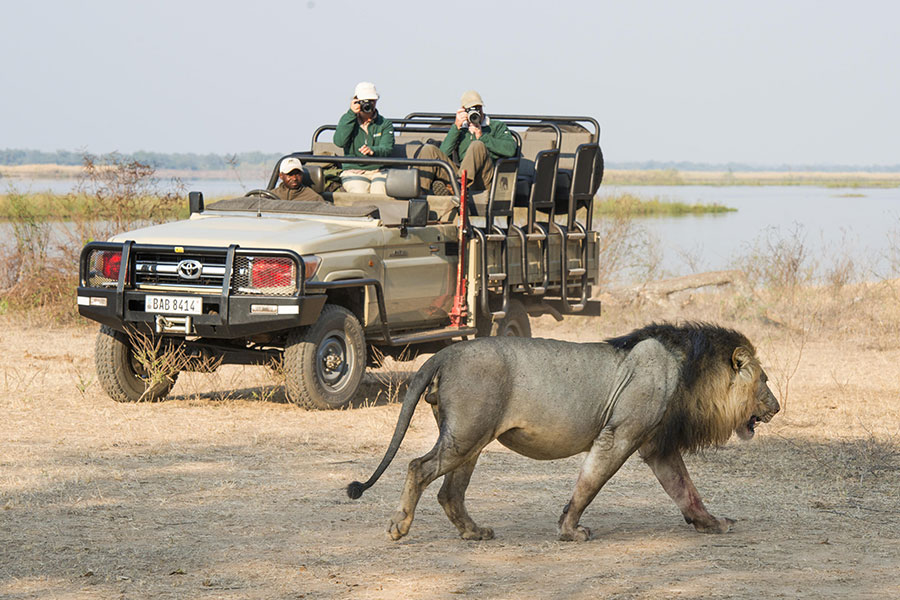
What can I do to ensure my safari has minimal COVID-19 risk?
We recommend planning a single destination holiday to avoid multiple connecting flights at different international airports, numerous customs facilities, crowded places, and sundry COVID-19 health and safety protocols.
There are countries in Africa that offer visitors way more than just game viewing. Countries like South Africa, Kenya and Tanzania deliver a variety of experiences from seeing incredible wildlife and landscapes, enjoying world-class services and cuisine to basking on exquisite beaches – without having to cross international borders.
Also, some safari camps and lodges can be booked exclusively. That’s right, you’ll have it all to yourself – ideal for families or a group of friends. Private safari villas and suites are also available, and more suitable for those who want the privacy and exclusivity that comes with a sole use accommodation, but have a considerably smaller entourage.
While you’ll always have a clean and secure stay on safari, booking an exclusive-use property will eliminate any lingering worries and doubts. You will have no contact with outsiders besides your personal staff (housekeepers, butlers, guides, etc.) who remain the same throughout your stay. All frequented areas like lounges, bedrooms, and vehicles are regularly and thoroughly cleaned to always ensure peak hygiene.
Most safari camps and lodges also provide guests the option to book a private safari vehicle for the duration of their stay. Not only does this allow you to enjoy game drives without other guests on board, but you’ll also be able to decide your own safari schedule.
Our Africa Safari Experts can tailor-make an itinerary around your travel wishes and ensure that the timing is right – so you can spend sufficient time in certain areas and complete your COVID-19 PCR test (if required) before continuing to your next destination or returning home.
Is Traveling to Africa Safe? Here’s What You Need to Know

It was our first time in Sub-Saharan Africa. I had dreamed of traveling across Africa ever since The Lion King. However, the moment we arrived I was nervous to be in Johannesburg, South Africa. What if we were carjacked? What if I got killed by a hippo? What if I contracted a life-threatening disease no one had ever heard of? What if I were to get lost in the wild?
We arrived without a plan or clue to what we were doing. One year later, Cameron and I have driven through South Africa, Mozambique, Lesotho, Swaziland, Namibia, Botswana, Zambia, Zimbabwe, Malawi, Tanzania, Rwanda, Uganda, and Kenya in our trusty Land Cruiser.
It was only a fraction of the African continent. After all, the continent includes 54 countries all with their own history, culture, and languages. It is a fascinating place to travel and should be your next destination. Disease, wildlife, crime, poor roads these are all safety concerns that any first-timer to Africa. In our experience that should not be a deterrent to travel in Africa.
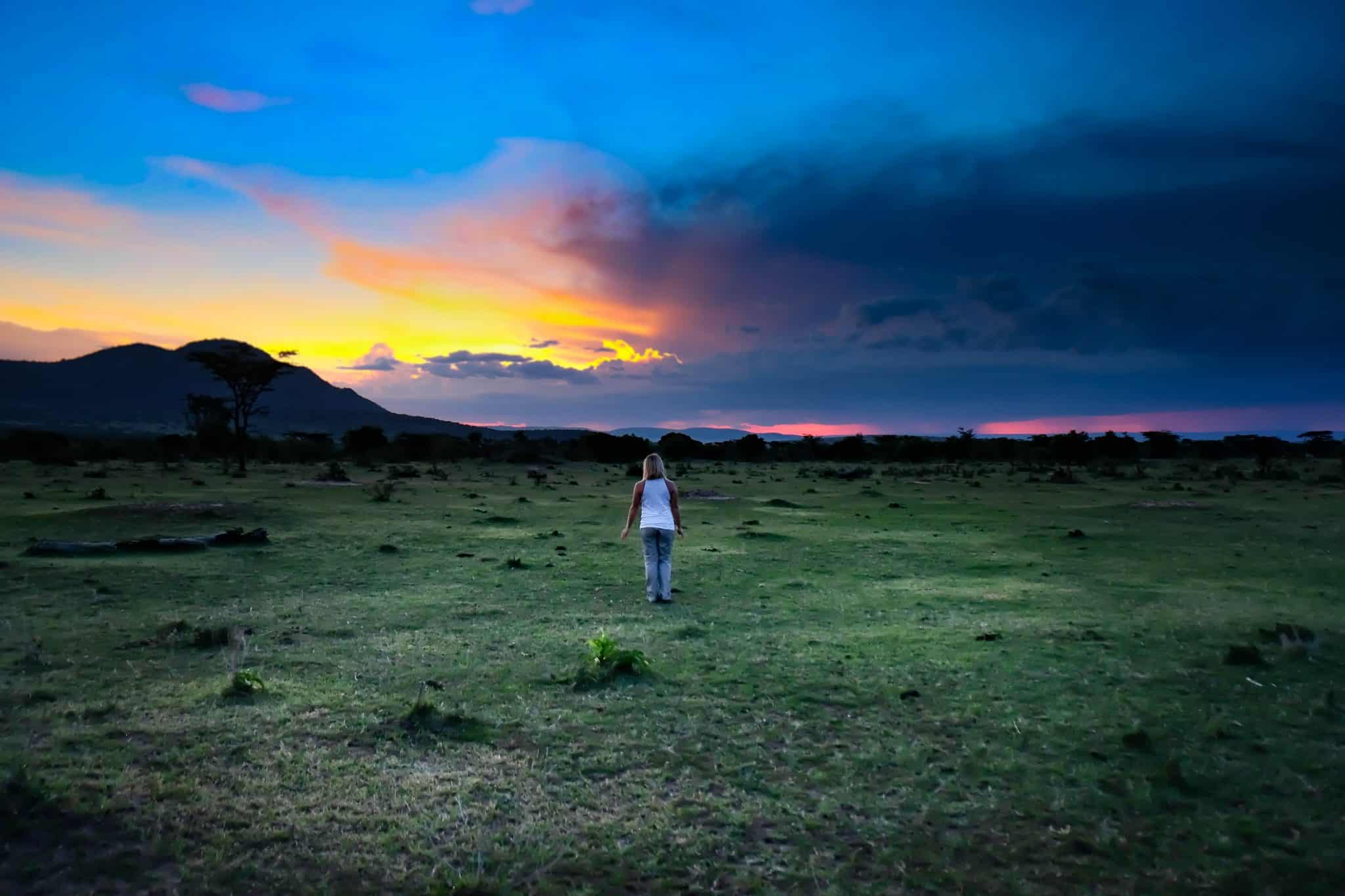
Is Traveling to Africa Safe? You’re Nervous Because…
The Malaria
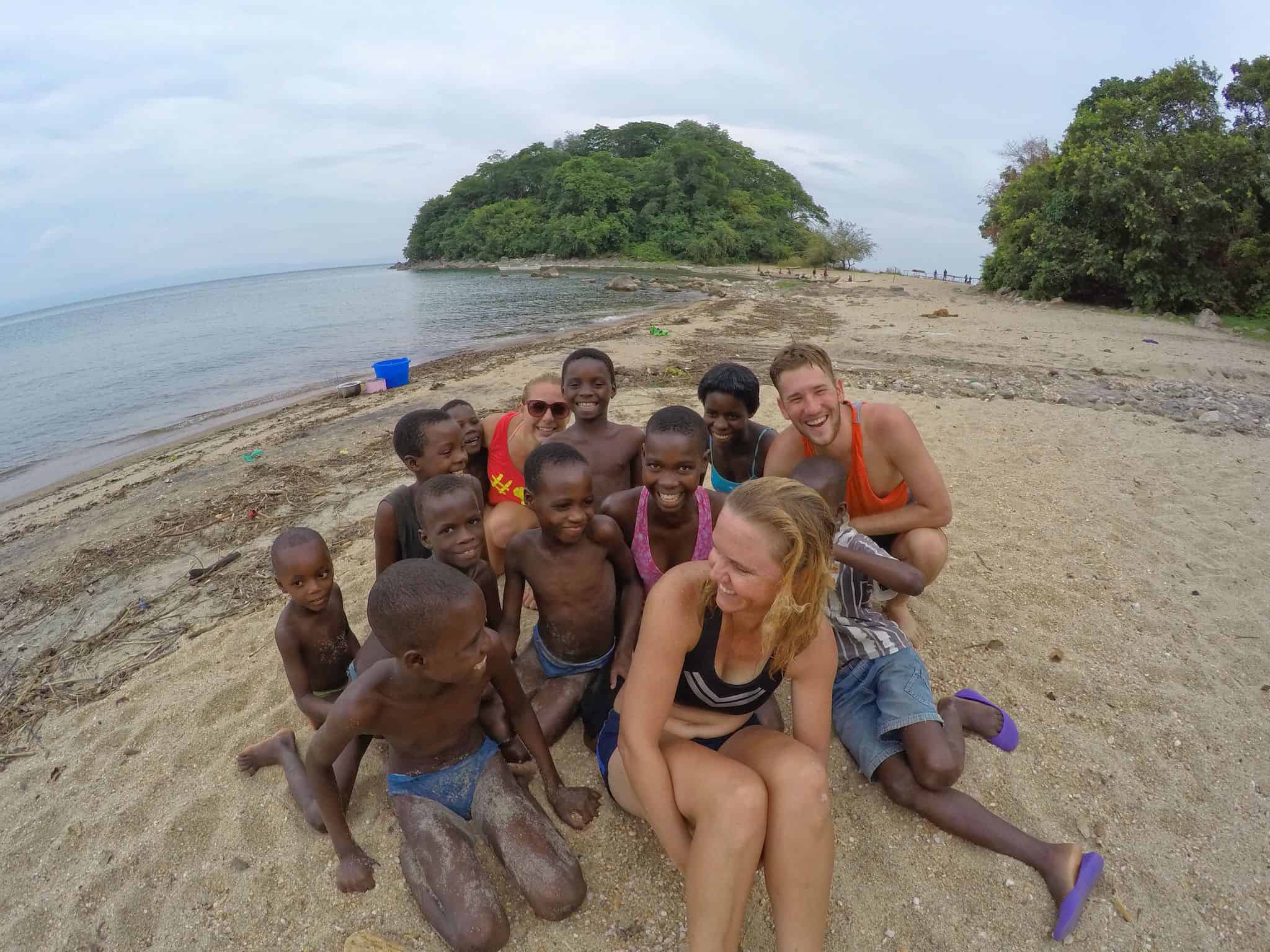
When people are wondering if traveling to Africa is safe or not they are often curious about the malaria. Malaria is like the boogeyman of Africa. It is a life-threatening disease attributed to a parasite carried by mosquitos. Malaria is a risk throughout sub-Saharan Africa, especially in populated areas. The symptoms of malaria are flu-like (chills, fevers, nausea). We’ve been told by anyone that has had it that it pretty much feels like you’re dying. It’s a serious disease that can be deadly if left untreated and kills nearly 3000 children a day, mainly from sub-Saharan Africa.
Preventative drugs are available such as Doxycycline and Malarone. Doxycycline does not produce crazy dreams, costs less than Malarone, but does lead to sun sensitivity. Malarone is more effective in prevention, can be used as a cure, but it is more costly and leads to vivid dreams and sometimes upset stomachs. One should note that neither of these drugs can fully prevent malaria.

Here is our experience with malaria and prevention: On arrival in South Africa, Cameron went to a private doctor in Johannesburg to get a Yellow Fever jab and a doctor’s consultation. An hour later he had a full bag of prescriptions from a specialized doctor and immunization to Yellow Fever. That visit cost him $86 – yes that’s American dollars. Compare that to $260 at a dodgy public clinic in the states (or $880, which is what my doctor charged my insurance in the US). When it came a malaria cure we picked up a box of Artemether and Lumefantrine for $3 over the counter in Mozambique, just in case we were to contract the disease.
In the twelve months of travel around Africa, we only took doxycycline for 3 weeks along the shores of Lake Malawi in Malawi. We were there during the rainy season and because malaria in Malawi (known as Cerebral malaria) is the deadliest form we thought best to be careful. On average we wear long sleeves and pants at night, sleep under mosquito nets, apply bug spray when appropriate, and ask locals if the mosquitos are prevalent and have never had malaria.
With the necessary precautions you can protect yourself against malaria, and it shouldn’t be a reason to avoid traveling to Africa. It’s always worth doing your research to see if where you’re traveling to is a malaria zone and find out which season you will be traveling. Mosquitos need water to breed so dry season is generally malaria free. We’ve met tourists in Cape Town whose doctors led them to spend upwards of $2000 for medicines for Africa, and they were never in a malarial zone. Don’t be those people.
The Roads

It’s true, some of the roads in Africa are downright awful. If you’re planning to self-drive in Africa then the safety and condition of the roads are a genuine concern. While we did drive on the worst roads of our lives, our journey from South Africa to Uganda was largely on paved roads. Granted, they just weren’t in the best shape.
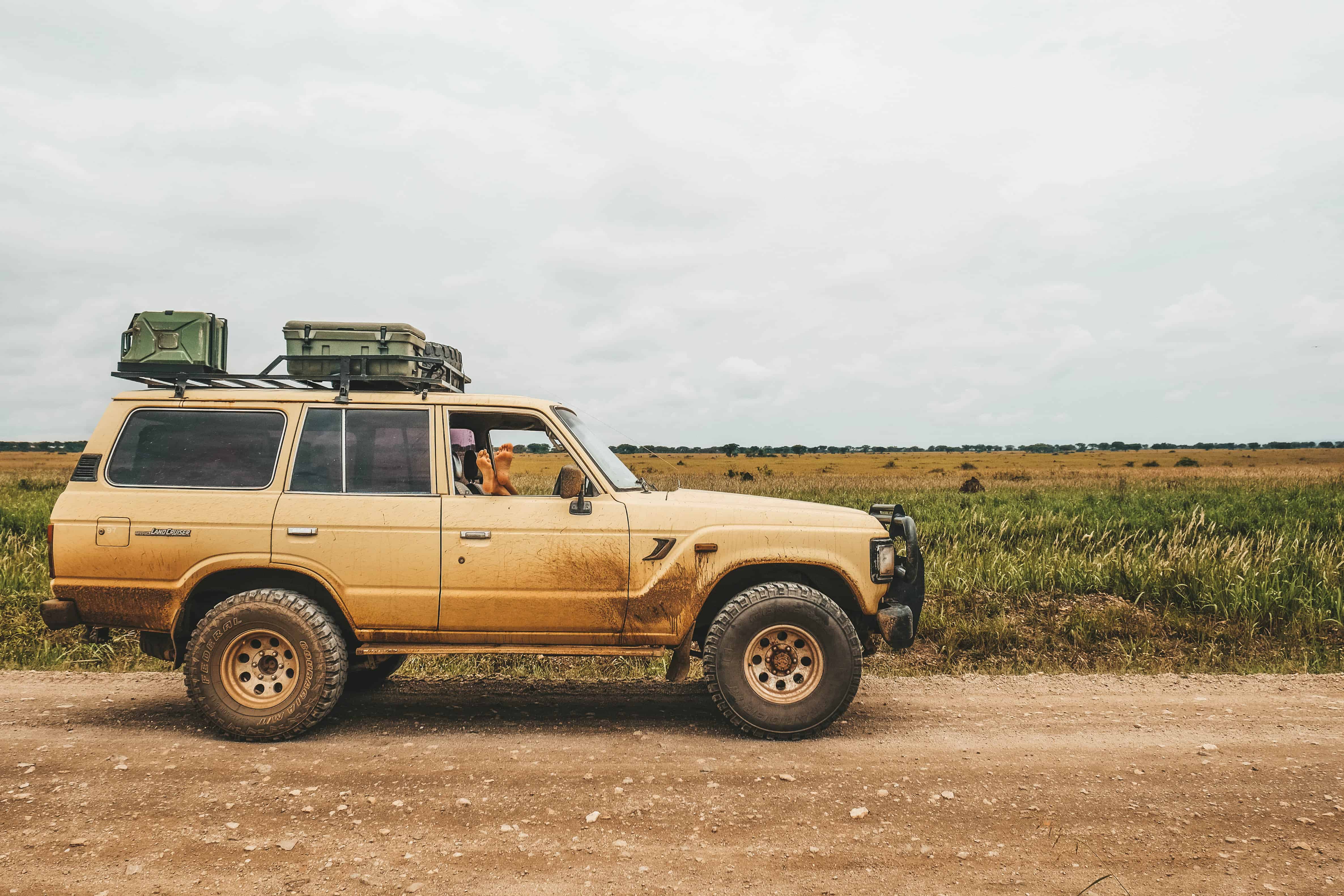
I would say that South Africa and Rwanda had some of the best roads and Zambia, Zimbabwe, Tanzania, and even Namibia (bad corrugation) had some of the worst. If you’re nervous about driving on the roads in Africa try to download the app Maps.me for routing advice and join the Facebook group Overlanding Africa. The Facebook group is full of people who have overlanded the continent, including us, and can provide current advice on routes and the state of roads.
The People and General Safety
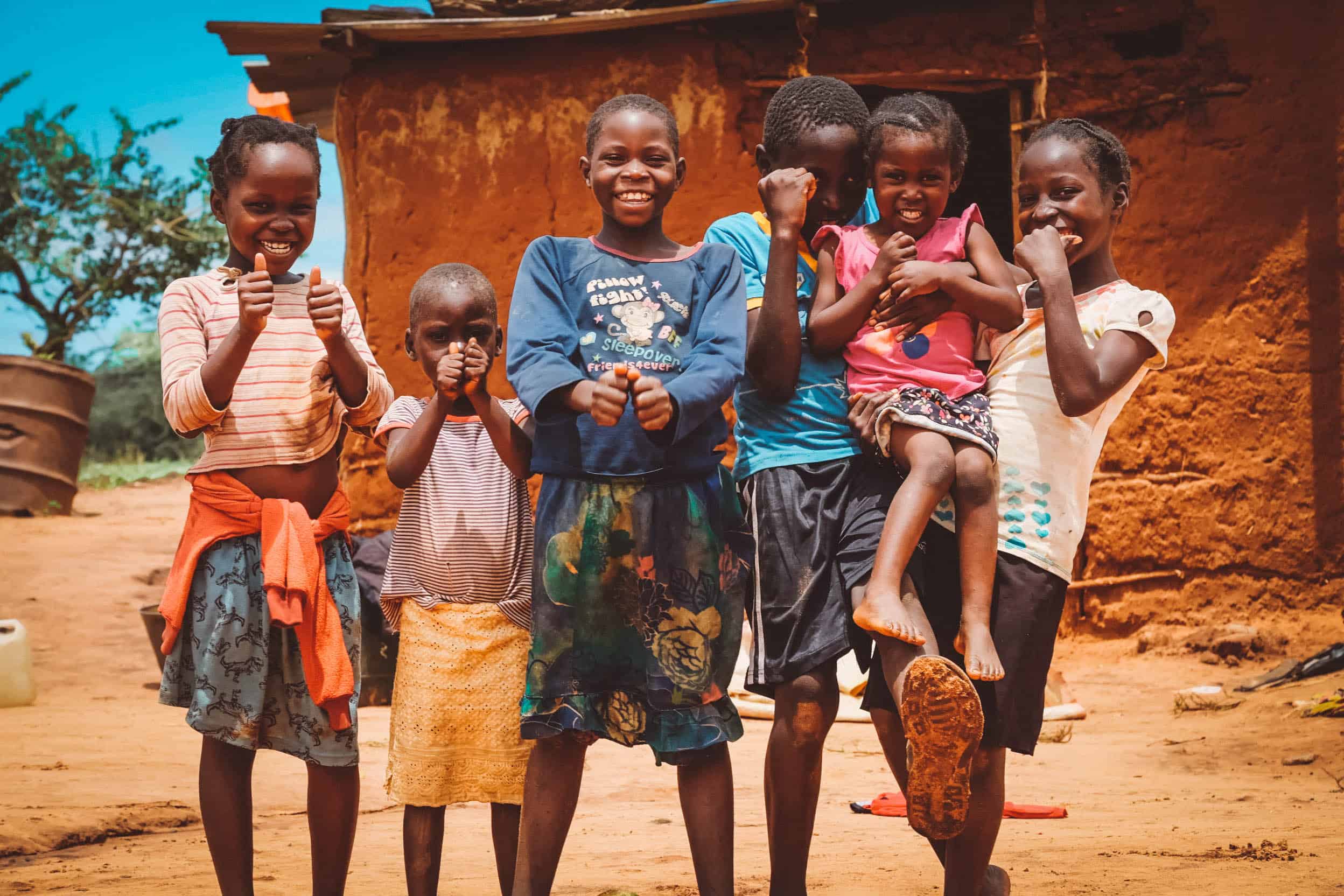
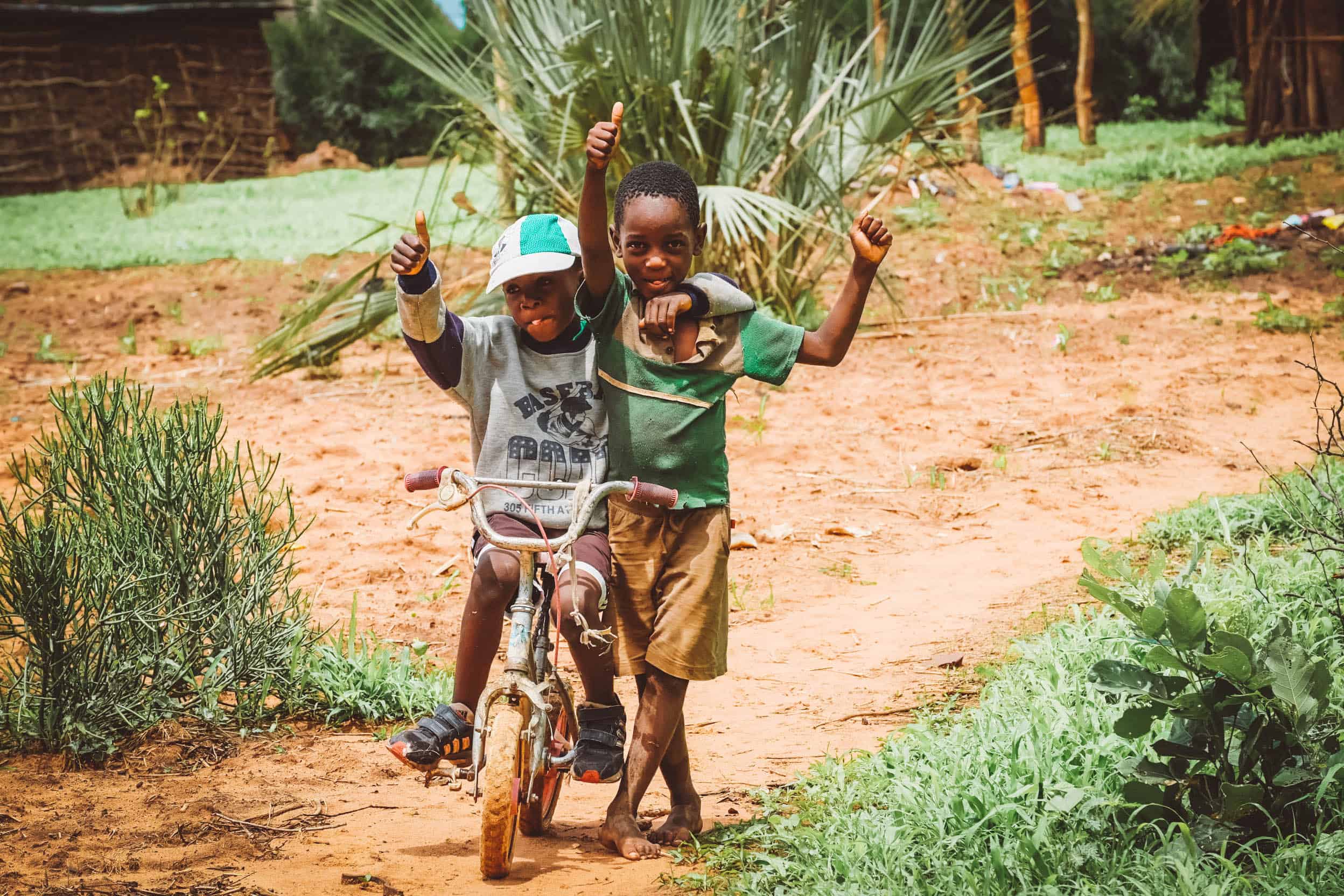
At first, when we looked at traveling around Africa I consulted a few friends that had been on an overland tour. “Africa isn’t safe, haven’t you heard about (fill in the blank),” they would say. Events like the Westgate Shopping Mall attack in Nairobi, the Chibok School Kidnappings in Nigeria, and UN worker kidnappings in the Congo really stick in the back of peoples heads when they are figuring out where to travel.
It doesn’t help that hearing “Rwandan Genocide” and “Idi Amin” still make many people shiver with fear in a not so distant history. Little mystery as to why so many people get nervous for their safety in Africa.
You may have also seen a movie or two about Africa that depicts lawlessness and extreme danger. While there are countries across the continent that are not safe to travel at the moment, this certainly isn’t true for all of 54 countries in Africa. Actually, for the most part, we felt safer in Africa than parts of the United States and Europe.

Don’t believe me? Visions of Humanity can agree with me! They list Botswana, Namibia, Zambia, and Tanzania as more peaceful than the United States. While there are some nations that I would not advise traveling to it’s important to realize the whole continent is not some giant war-zone as depicted by the mainstream media.
We always felt welcomed in Africa by the people of each and every country. Children greet us with waves and smile and we’ve had mothers run to us with their babies in tow smiling. Usually, people are very curious about us, especially in rural villages. In cities, we are always treated as friends, and in general, locals are just very happy that we chose to visit their country.

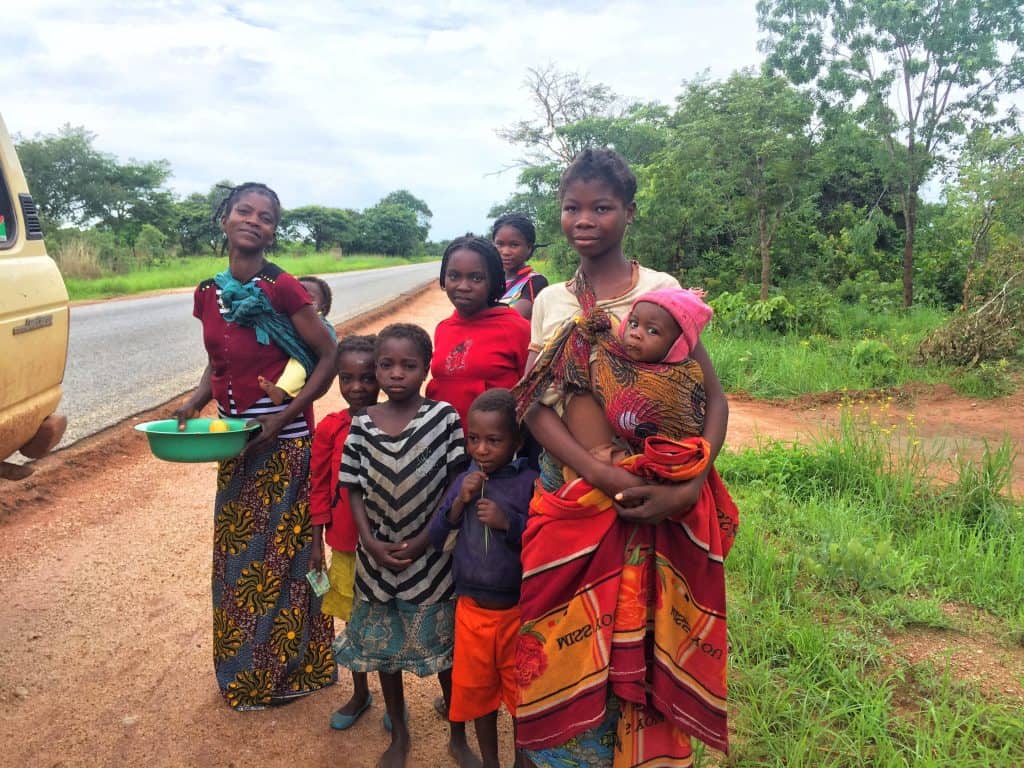
The Internet
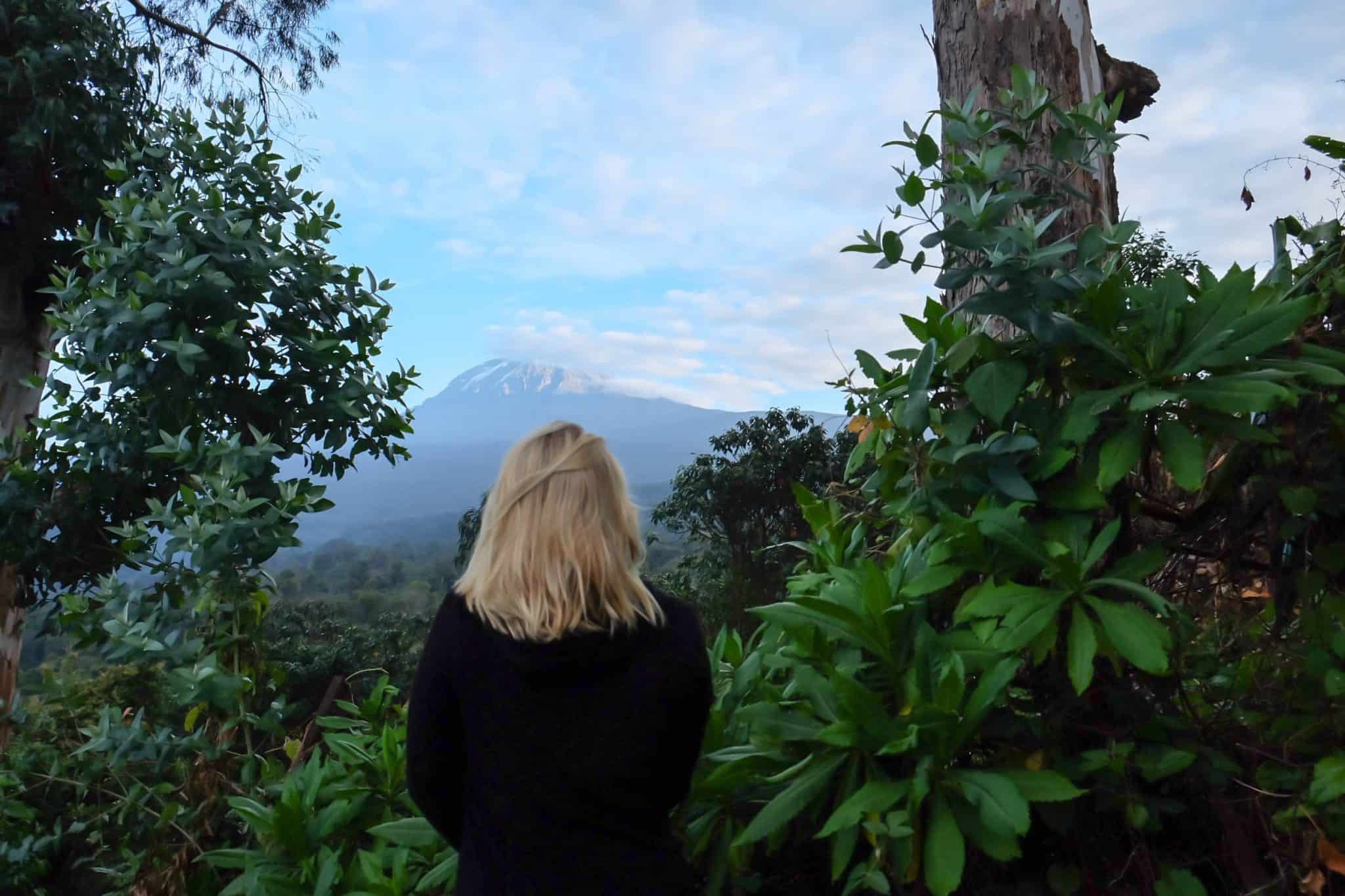

The internet in Africa shouldn’t scare anyone from coming, but for those that need to be online for business purposes – I understand. Before landing on the continent my expectations for the internet speeds in Africa were low. I wasn’t sure if we would be able to stay connected outside of major cities.


I’ve touched more on the internet situation in Africa here. If you are just coming to Africa for a two to three week holiday you will be more than fine with the internet speeds. We’ve only stayed in a few lodges in Africa that didn’t have any access to internet. Most holiday goers will have the connection abilities to check email, post to Facebook, and Skype call home. If you are doing more of the overland and camping thing like we did, I would advise picking up a local sim card at the airport and loading it with data so you can stay connected on the go.
The Wildlife

Sometimes, it’s hard to understand why anyone would want to head to Africa when there are just so many animals that can kill humans. Lions are not exactly friendly and although elephants are considered “gentle giants” they can and do squash a human in an instant. Some may read about lion attacks and elephant encounters and swear off the continent as a whole.
The reality of these wildlife interactions usually has some aspect of human error. Don’t go swimming or hang out on the banks of the Zambezi River, respect animals personal space, and don’t walk around wildlife areas alone without a torch at night. At the end of the day, animals attack when they feel threatened.
It’s worth noting that the majority of human deaths caused by animals occurs to locals. Sadly, it is the people that live with the African wildlife every day that are more susceptible to hippo attacks, snake bites, and elephant confrontations. The chance of a tourist getting hurt by a wild animal is slim. Most tour operators and lodges take safety measures to ensure a safe trip to Africa for their guests.
The Heat

It’s always hot in Africa, right? Not exactly. Africa is diverse with tall mountain ranges, vast savannah, coastal regions, and lush rainforests. There are also two main seasons in Africa – dry and rainy. No matter the terrain or season the African heat is no reason to avoid traveling Africa.
We’ve spent cold nights in Tanzania only to be sweating off 10 lbs out in the sun the very next day. We’ve hiked high into the jungle for gorilla trekking only to find ourselves reaching for our jackets. The dry season is generally hotter than the rainy season, but we have found that in many parts of Africa the rainy season, although cooler, is humid. It’s important to research beforehand about what to wear. It should be based on where you are headed and season.
Generally, any trip to Africa should be accompanied by a jacket for early mornings and night time. Layers are great so that you can get adjust to rapid shifts in temperature by midday.
Planning your trip to Africa may seem overwhelming, but rest assured that Africa is ready for you. Are you ready for it?
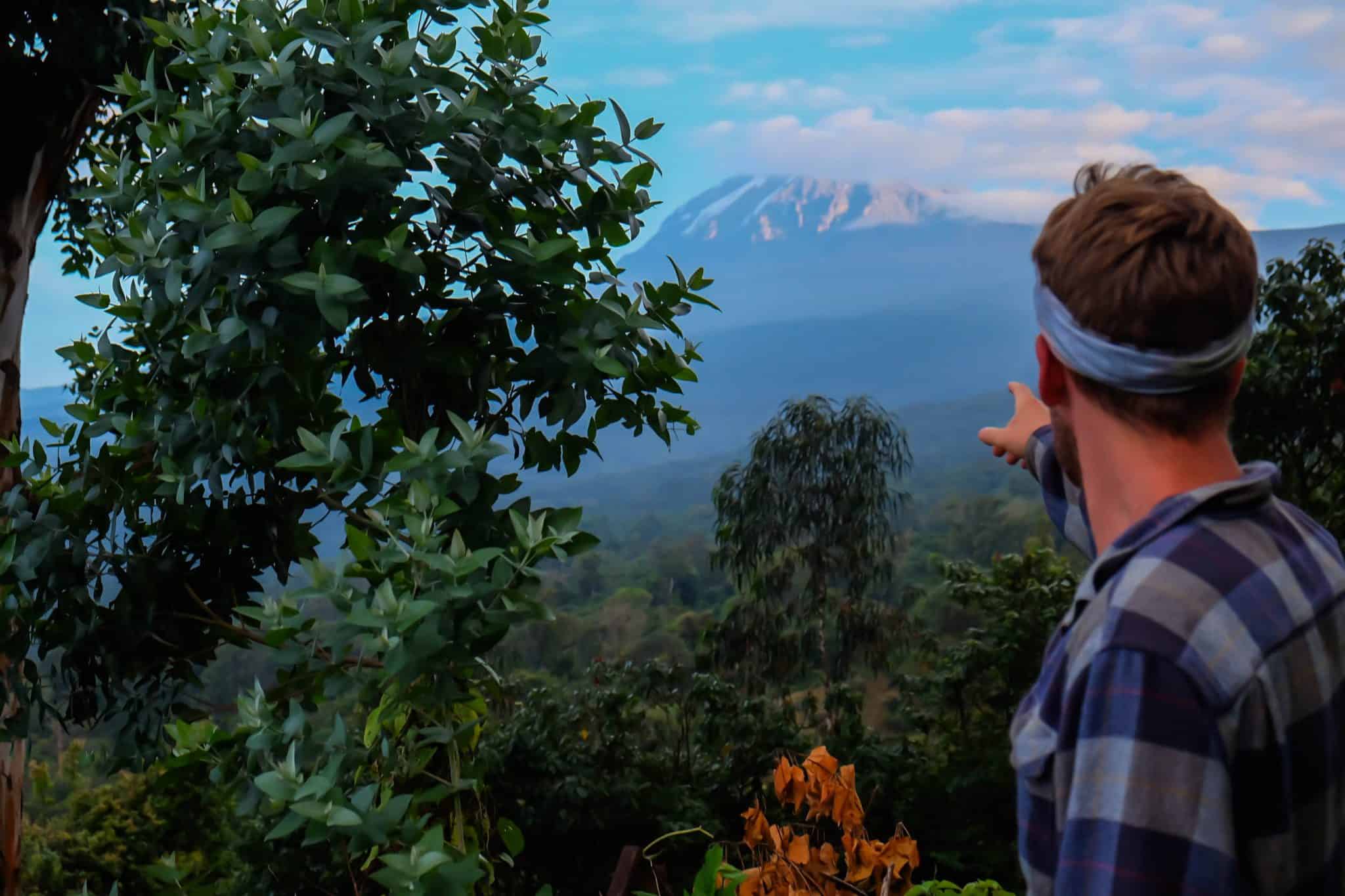
Packing the right safari clothes is always a good idea, but it’s never essential because you can wear whatever you want. We also go in-depth on the best women’s safari clothes!
Plan Your Trip to Africa
- Travel Insurance: We don’t travel without travel insurance and neither should you. You never know what can happen while traveling so it’s best to be prepared. HeyMondo provides excellent short-term and long-term travel insurance plans.
- Travel Waterbottle: When we’re uncertain about the water supply we use our Grayl Purifier. It’s come in exceptionally handy around Africa.
- Camera Gear: Chances are you’ll want a camera for your trip to Africa. We love the Sony RX100V for a pocket-size camera and the Fujifilm XT-4 for a professional camera. Check out our favorite cameras for Africa.
- Safari Clothes: Lightweight, beige, and moisture-wicking clothing are great for traveling Africa. See our favorite safari clothing here.
- Safari Hat:A good hat is both stylish and functional.
- Safari Bag:A durable bag is ideal for traveling around Africa. : We recommend neutral-colored pants as they’re great at hiding dirt and can match most shirt colors.
- Safari Shirt: Shirts like these are lightweight and keep the bugs away!
- Boots:While you don’t need to wear sturdy shoes every day, at least one pair of safari boots will make your trip nicer!
- Travel Adapter: You’ll need a special travel adapter for traveling Africa. Get one before you get there so you don’t pay a premium on the ground.
About Natasha
Natasha is the co-founder of The World Pursuit. She is an expert in travel, budgeting, and finding unique experiences. She loves to be outside, hiking in the mountains, playing in the snow on her snowboard, and biking. She has been traveling for over 10 years experiencing unique cultures, new food, and meeting fantastic people. She strives to make travel planning and traveling easier for all. Her advice about international travel, outdoor sports, and African safari has been featured on Lonely Planet, Business Insider, and Reader’s Digest.
Learn more about Natasha Alden on The World Pursuit About Us Page.
Leave a Comment

Welcome to the world, as seen through the eyes of Cameron Seagle and Natasha Alden. On this site, readers will find our experiences, gear reviews, photography, tips, and informative travel guides.
We love getting to off-the-beaten-path destinations and aren’t afraid to go it alone. We hope to inspire other independent travelers and provide them with the resources to do so.
If you’d like to learn more visit the about us page.
Follow Us On Social!
This article may contain affiliate links. We receive compensation if you make a purchase, but it won’t cost you anything extra.
Related Posts
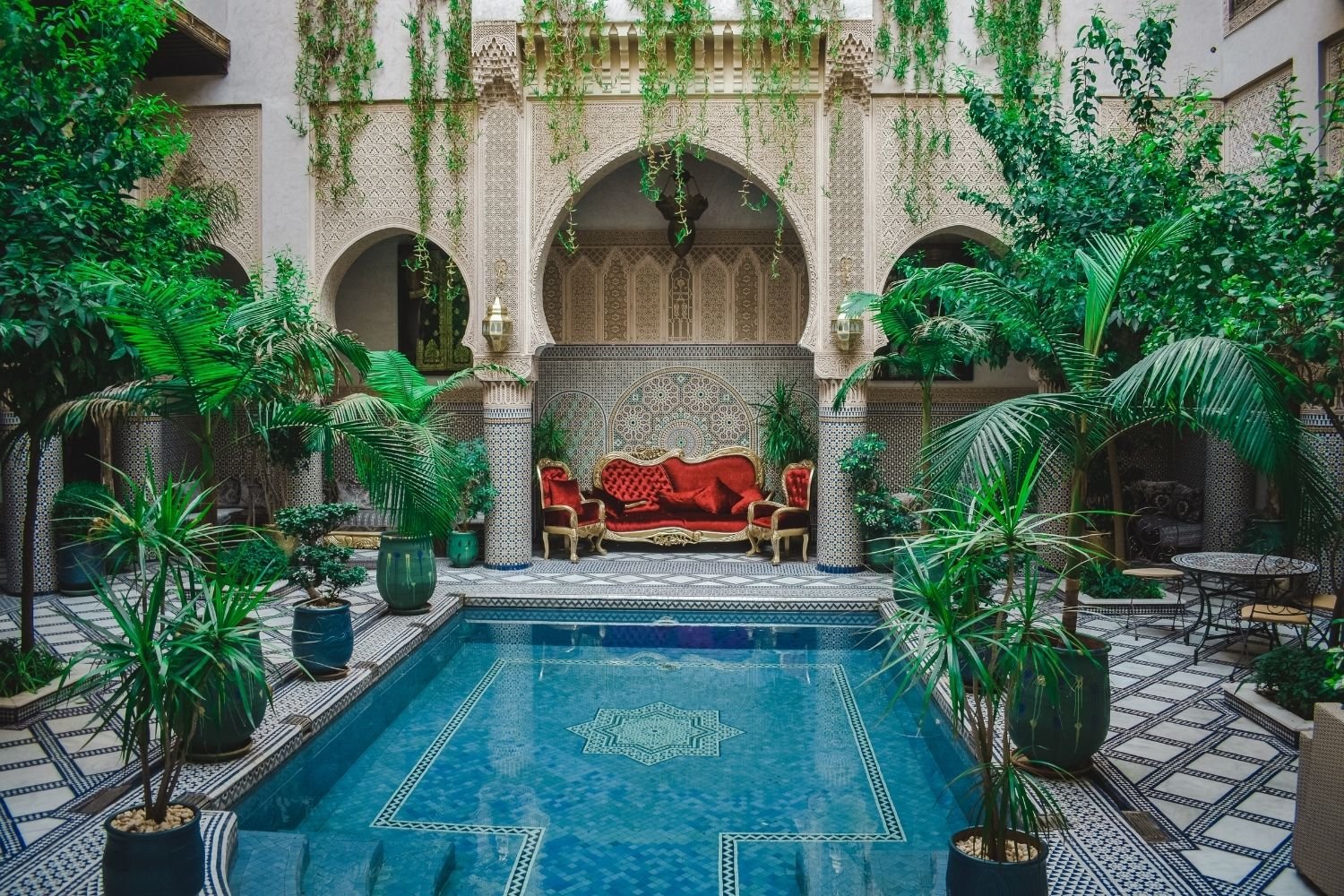
What is a Riad? 7 STUNNING Moroccan Riads You’ll Want to Book
Seeking more information about riads and what a Riad is in Morocco? We’ve spent a lot of time traveling around the Northern African nation, and no experience is more essential…

20 Amazing Things to do in Zanzibar (Africa)
There are many places to visit and things to do in Zanzibar. The East African island has a lot of things to do and experience. It’s safe to say that…
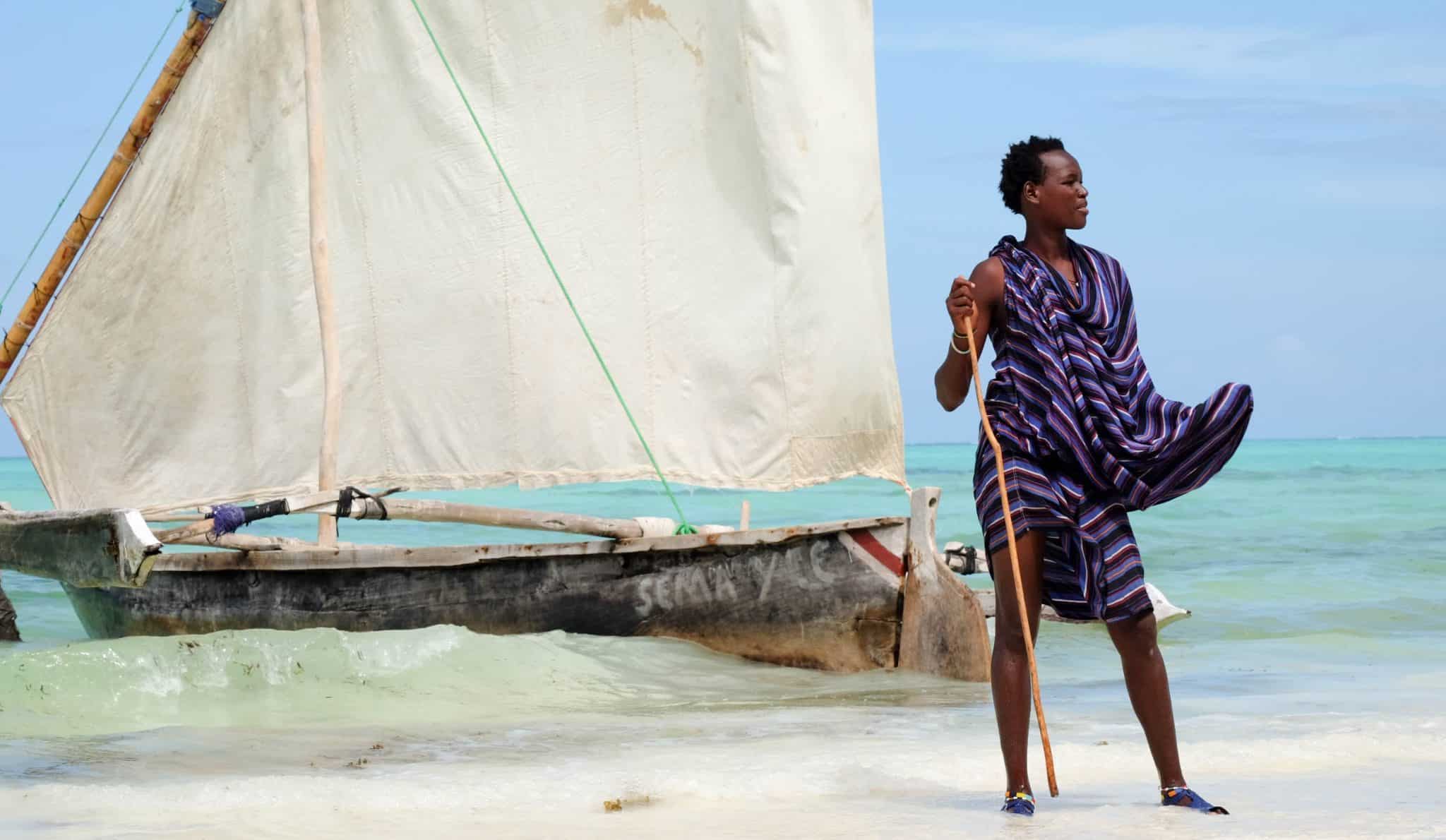
15 Zanzibar Travel Tips To Know Before You Go
Planning to travel to Zanzibar and in search of a few Zanzibar travel tips? Whether you are on an African honeymoon, finishing up your Kilimanjaro Trek, or exploring the plains…
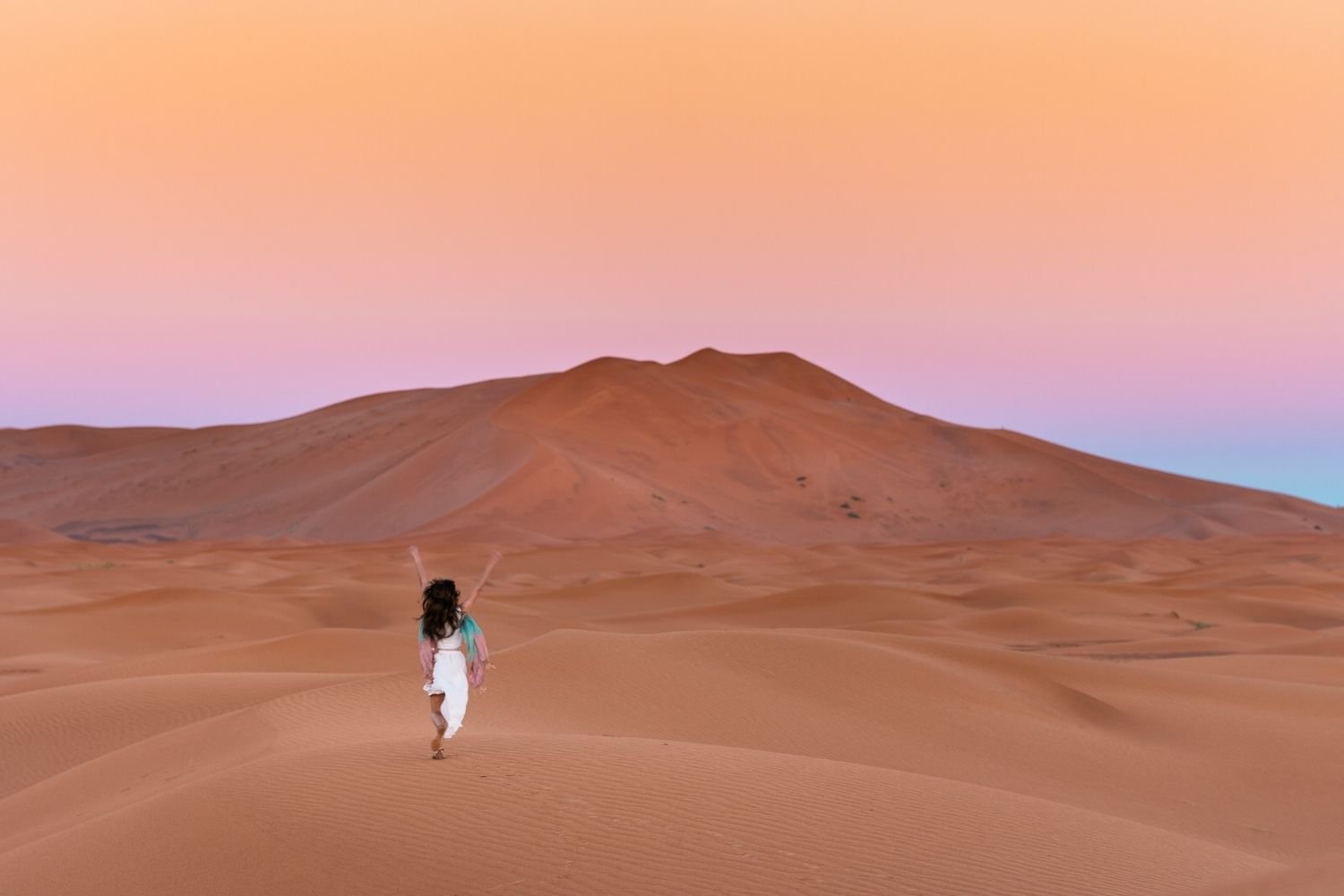
What To Wear In Morocco • Ultimate Clothing for Morocco Packing List
Morocco is a great destination to visit during any month of the year. If you have plans to visit Morocco soon and have no idea what to pack for Morocco, you’re…
Johannesburg: How to stay safe on holiday in South Africa
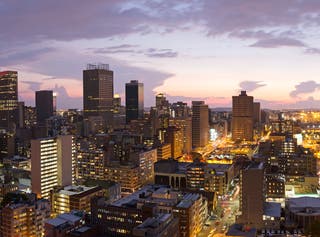
Put off by Johannesburg’s enduring reputation for crime, many tourists to South Africa barely glimpse the pavement outside the airport before moving on elsewhere. Those who do decide to give the city a closer look often leave wishing they’d given the city more time. The people are friendly, the weather’s great and the museums plenty. As in the rest of South Africa crime is still an issue, particularly pickpocketing and petty theft. However, by being aware – rather than panicked – about crime in Joburg, there’s every chance you’ll enjoy a trouble-free holiday – and probably even have some fun too.
Be aware of your surroundings
I haven’t been robbed in five years of living here but I’ve seen many audacious, opportunistic thieves try their luck. It always pays to be aware of your surroundings. Staring blankly into your smartphone on a street corner is a particularly easy way to lose it or your bag. While driving, keep an eye on what’s happening behind your car as well as in front, particularly when waiting at junctions at night. If somebody exits the car behind and starts approaching you on foot, find a safe way to move on.
Know where you’re going
Recommended
Johannesburg’s northern suburbs spread out in a vast, low rise sprawl and you won’t see many people walking around – by day this is less an indicator of danger than a consequence of distance. That said this isn’t a city that rewards aimless strolling. Look up where you want to go before you set off. Only visit areas like Hillbrow, Berea, Joubert Park and Yeoville with a local and trust your instincts if it feels like you’ve strayed into a bad part of town.
Don’t be afraid of the dark
If your hotel tells you not to go further than the restaurant across the street at night, take their advice with a pinch of salt. They may well be looking for a commission. While it isn’t particularly safe to walk the city at night, you can always take a taxi. You’d be missing out if you didn’t get to enjoy more of the city after dark. For nightlife head to areas like 7th Street in Melville or Fox Street in Maboneng and check out the magazine Johannesburg In Your Pocket for the latest events happening in the city.
Take a walk downtown
One of Johannesburg’s most interesting areas to explore on foot, the historic downtown area has an energetic and colourful streetlife that reflects the city’s cosmopolitan mix of South African, European and pan-African influences. Rejuvenated areas like Braamfontein, Maboneng and the Main Street mining district are easy to explore on your own while walking tour companies Past Experiences and MainStreetWalks offer objective and insightful perspectives that take in everything from street art to traditional markets. The open-top City Sightseeing bus is another good way to get a taste for the inner-city.
Spend time in Soweto
South Africa’s largest and most famous township is more like a city in itself and worth more than a cursory drive by. The tiny Nelson Mandela House Museum on touristy Vilakazi Street might feel like Soweto’s essential landmark but you’ll find a few hours spent walking or cycling the streets with a local guide much more rewarding.
Download Uber
If you have a smartphone start using Uber. It’s safer, more punctual and reliable than using a local meter taxi and will cost you a fraction of the price. Occasionally violent conflict between private meter taxi drivers and Uber drivers (with Uber drivers and their passengers at the receiving end) is still ongoing, particularly at Gautrain stations, so try to arrange a pick up point that’s away from the taxi rank.
Fake police officers?
Reports last year of fake police officers robbing a Dutch tourist bus did little to help the city’s reputation among international travellers. However, crimes involving fake officers are a rare exception, not the norm. Unless you are fleeing a crime, a legitimate police vehicle will usually only stop you at a routine roadblock, where there’ll be a long line of other cars. They won’t flag you down by the side of the motorway in the night. If you think a police car is following you drive to the nearest petrol station before seeing what they have to say.
Register for free to continue reading
Registration is a free and easy way to support our truly independent journalism
By registering, you will also enjoy limited access to Premium articles, exclusive newsletters, commenting, and virtual events with our leading journalists
Already have an account? sign in
By clicking ‘Register’ you confirm that your data has been entered correctly and you have read and agree to our Terms of use, Cookie policy and Privacy notice.
This site is protected by reCAPTCHA and the Google Privacy policy and Terms of service apply.
Register for free to continue reading
Registration is a free and easy way to support our truly independent journalism
By registering, you will also enjoy limited access to Premium articles, exclusive newsletters, commenting, and virtual events with our leading journalists
Already have an account? sign in
By clicking ‘Register’ you confirm that your data has been entered correctly and you have read and agree to our Terms of use, Cookie policy and Privacy notice.
This site is protected by reCAPTCHA and the Google Privacy policy and Terms of service apply.
Join our new commenting forum
Join thought-provoking conversations, follow other Independent readers and see their replies
1 /3 How to stay safe in Johannesburg
How to stay safe in Johannesburg
It has a reputation for crime but with an open mind and your wits about you it’s perfectly possible the city will prove a pleasant surprise
Source https://www.go2africa.com/african-travel-blog/faqs-about-travelling-in-africa-during-covid-19
Source https://theworldpursuit.com/travel-to-africa-safe/
Source https://www.independent.co.uk/travel/africa/johannesburg-how-to-stay-safe-south-africa-holiday-crime-a8212101.html



